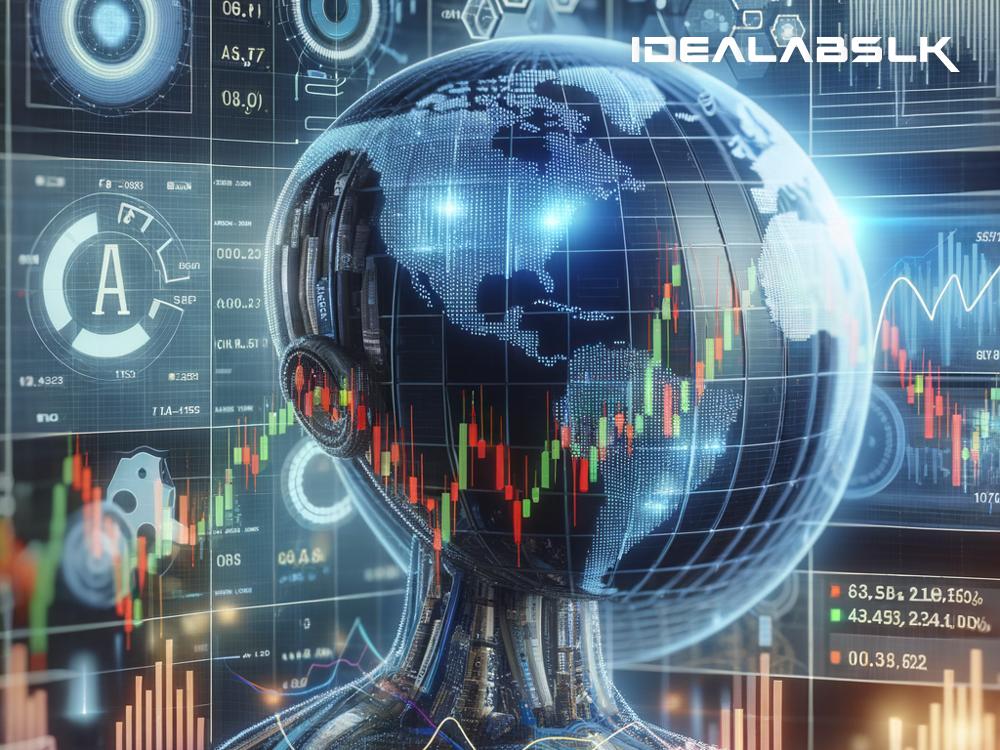AI for Trading: Real-Time Decision Making with Artificial Intelligence
In the ever-evolving world of trading, speed, accuracy, and efficiency have always been of paramount importance. The introduction of Artificial Intelligence (AI) into this sphere has revolutionized the way decisions are made, trades are executed, and profits are maximized. AI for trading is not just a futuristic concept but a present-day reality that is reshaping the financial markets as we know them.
What is AI for Trading?
AI for trading involves utilizing artificial intelligence technologies to make trading decisions and execute trades at speeds no human can match. This can range from analyzing vast amounts of financial data to predict market trends, to executing trades at the optimal time without any human intervention. The goal is simple: to gain a competitive edge in the market by leveraging AI's processing power, learning capabilities, and speed.
How Does it Work?
At the heart of AI trading systems are complex algorithms that can learn from data, identify patterns, and make predictions about future market movements. These algorithms can process millions of data points from various sources - including market indicators, economic reports, and social media sentiment - in a fraction of a second.
The system uses this data to make informed decisions about which trades to execute, when to execute them, and at what price. The beauty of AI is that it can continuously learn and adapt its strategies based on new data and outcomes of previous trades, thereby refining its decision-making process over time.
Advantages of AI in Trading
-
Speed: AI can analyze and act on information much faster than a human can, allowing trades to be made at the optimal time.
-
Accuracy: By processing vast amounts of data, AI can make more informed decisions, reducing the likelihood of errors that can occur due to human oversight.
-
Efficiency: AI systems can operate 24/7, unlike humans. This means they can react to market changes at any time, even outside regular trading hours.
-
Emotionless Trading: One of AI's most significant advantages is its ability to execute trades based on data alone, without being influenced by emotions like fear or greed, which can often lead to suboptimal trading decisions.
Examples of AI in Trading
Several high-profile examples of AI in trading illustrate its potential:
-
Algorithmic Trading: Many hedge funds and investment banks use AI-driven algorithmic trading to execute complex trading strategies that involve buying and selling large volumes of stocks in fractions of a second.
-
Robo-Advisors: These are AI-driven platforms that provide automated, algorithm-based portfolio management advice. They can tailor investment strategies to an individual's risk tolerance and financial goals, often at a lower cost than human financial advisors.
-
Sentiment Analysis: AI tools can scan news articles, social media posts, and other sources of textual data to gauge the market sentiment. This information can be incredibly valuable in predicting market movements.
Challenges and Considerations
Despite its numerous benefits, AI for trading is not without its challenges. The quality of the data fed into AI systems is crucial; garbage in means garbage out. Additionally, these systems can be expensive to set up and maintain, requiring significant investment in technology and talent.
Furthermore, while AI can remove the emotional component of trading, it also removes the human intuition, which can sometimes be invaluable. There's also the risk of over-reliance on technology, leading to potential systemic risks if these systems fail or are exploited.
The Future of AI in Trading
The trajectory of AI in trading suggests that its influence will only grow. As AI technologies continue to advance, we can expect trading algorithms to become more sophisticated, making even more accurate predictions and executing even more complex strategies. This will likely lead to increased efficiency, reduced costs, and potentially even greater returns.
Wrapping It Up
AI for trading represents a significant shift in how financial markets operate. It offers the promise of enhanced efficiency, accuracy, and profitability but also presents new challenges and risks. As with any powerful technology, the key will be in how we harness its potential responsibly and sustainably. In the future, the most successful traders might not be those with the best instincts but those who can best leverage the power of AI.

